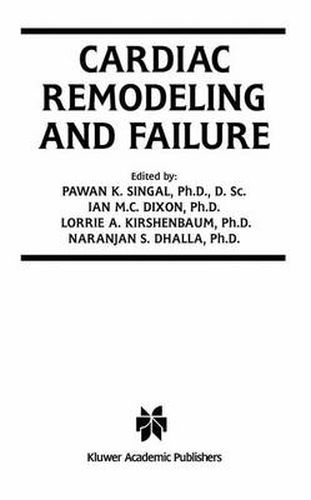Readings Newsletter
Become a Readings Member to make your shopping experience even easier.
Sign in or sign up for free!
You’re not far away from qualifying for FREE standard shipping within Australia
You’ve qualified for FREE standard shipping within Australia
The cart is loading…






This title is printed to order. This book may have been self-published. If so, we cannot guarantee the quality of the content. In the main most books will have gone through the editing process however some may not. We therefore suggest that you be aware of this before ordering this book. If in doubt check either the author or publisher’s details as we are unable to accept any returns unless they are faulty. Please contact us if you have any questions.
According to the World Health Report (2000 http:/ /www. who. int/whr), of the 55 million deaths worldwide in 1999, more than 16 million were secondary to car diovascular complications. With the prospect of world population increasing from the current level of 6 billion to 9 billion by the middle of this century, the burden of cardiac disease is going to increase astronomically. Furthermore, scientists are being challenged not only to reduce mortality, but also to improve quality of life. Thus, more than ever, intellectuals from different disciplines including biology, sociology, informatics and health care have to join forces to meet the mandate. The World Heart Congress with a focus on Frontiers in Cardiovascular Health held in Winnipeg during July 6-11, 2001, made a unique attempt to bring these specialists together to brainstorm and map out the course of action for cardiovascular research and health in the next century. Anytime there is a relative increase in the workload on the heart, there are adap tive myocardial as well as humoral responses. When these adaptations or remodel ing at the organ, subcellular or gene level, become inadequate for a proper tissue perfusion, the condition of heart failure ensues. Prevention of the factors leading to the relative increase in workload as well as a better understanding of the adap tive responses and their failure are some of the hopes to combat the morbidity and mortality due to heart failure.
$9.00 standard shipping within Australia
FREE standard shipping within Australia for orders over $100.00
Express & International shipping calculated at checkout
Stock availability can be subject to change without notice. We recommend calling the shop or contacting our online team to check availability of low stock items. Please see our Shopping Online page for more details.
This title is printed to order. This book may have been self-published. If so, we cannot guarantee the quality of the content. In the main most books will have gone through the editing process however some may not. We therefore suggest that you be aware of this before ordering this book. If in doubt check either the author or publisher’s details as we are unable to accept any returns unless they are faulty. Please contact us if you have any questions.
According to the World Health Report (2000 http:/ /www. who. int/whr), of the 55 million deaths worldwide in 1999, more than 16 million were secondary to car diovascular complications. With the prospect of world population increasing from the current level of 6 billion to 9 billion by the middle of this century, the burden of cardiac disease is going to increase astronomically. Furthermore, scientists are being challenged not only to reduce mortality, but also to improve quality of life. Thus, more than ever, intellectuals from different disciplines including biology, sociology, informatics and health care have to join forces to meet the mandate. The World Heart Congress with a focus on Frontiers in Cardiovascular Health held in Winnipeg during July 6-11, 2001, made a unique attempt to bring these specialists together to brainstorm and map out the course of action for cardiovascular research and health in the next century. Anytime there is a relative increase in the workload on the heart, there are adap tive myocardial as well as humoral responses. When these adaptations or remodel ing at the organ, subcellular or gene level, become inadequate for a proper tissue perfusion, the condition of heart failure ensues. Prevention of the factors leading to the relative increase in workload as well as a better understanding of the adap tive responses and their failure are some of the hopes to combat the morbidity and mortality due to heart failure.